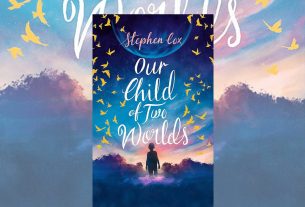
Nostalgia is in my blood. I have been drawn to social history since I was a not-terribly rebellious teenager. One of the first time periods that interested me was the 1960s. It was such a time of obvious change in the United States. Portions of society lost their innocence, while others were empowered. Music often made a statement, and drugs influenced lives. What was life like at the end of that decade, and at the turn of the 1970s? The boundless optimism of earlier in the ’60s had disappeared, and times, they were a-changin’. The best way to learn about a certain time (for those of us who weren’t quite born yet) is to go straight to the source.
Primary sources such as interviews are excellent ways to get a feel for a time, an event, or a person. The Smith Tapes: Lost Interviews with Rock Stars & Icons, 1969-1972 is the collection of dozens of interviews by Howard Smith, who was a journalist for The Village Voice, a radio personality, and a counter-culture reporter. He had a lot of clout in the counter-culture community, and thus had access to many of the major players of the time. He recorded hundreds of interviews with iconic personalities and musicians during that time, and then left the recordings in his loft. Forty years later they were rediscovered, and 61 of them have been transcribed and are now contained in this book.
Broken up by year, the interviews are included verbatim. A few photos are included, but the text stands on its own. There is also a brief timeline in the front of the book that covers some relevant events from the given time period (from the Tet Offensive beginnings on January 30, 1968, to the 45th Academy Awards on March 27, 1973), with the book’s interviews listed in bold type for context. Reading through the interviews, you are immersed in a time gone by. It’s truly like opening up a time capsule, learning about a snapshot of history through the eyes of those who lived it, at the time they lived it. This isn’t a book about history. It is a contemporary look at a section of society, recorded in the moment, but shared decades later.
The list of musicians and icons interviewed include Lou Reed, Andy Warhol, Arlo Guthrie, Raquel Welch, John Lennon & Yoko Ono, Dick Cavett, Abbie Hoffman, Janis Joplin (in her last interview, four days before her death), Dustin Hoffman, Jane Fonda, R. Buckminster Fuller, Frank Zappa, Allen Ginsburg, and many, many more people. Musicians are well represented, but there are plenty of other types of people as well.
Each interview is preceded by a context summary of where the person was in their life and career at the time of the interview. It’s helpful when creating the snapshot effect that Howard Smith was known for on his radio show. Reading through the interviews, obviously some people were a little more eloquent than others. The 1960s were hard on some folks, but others sailed through successfully, coming out the other side with aplomb.
Full of surprises and also full of much of what you’d expect, The Smith Tapes is a satisfying trip back in time. It’s both wild and entirely normal. Wise and mundane. Definitely worth a read for students of cultural history.
For those interviewees who are still alive today, I wonder what they would say about that time period now, and their reaction to it?
Note: I received a copy of the book for review purposes.




